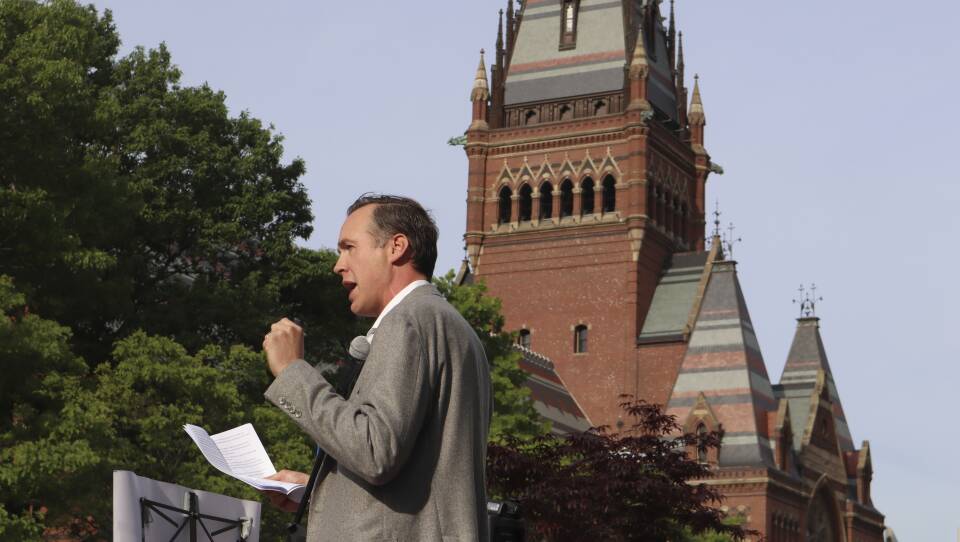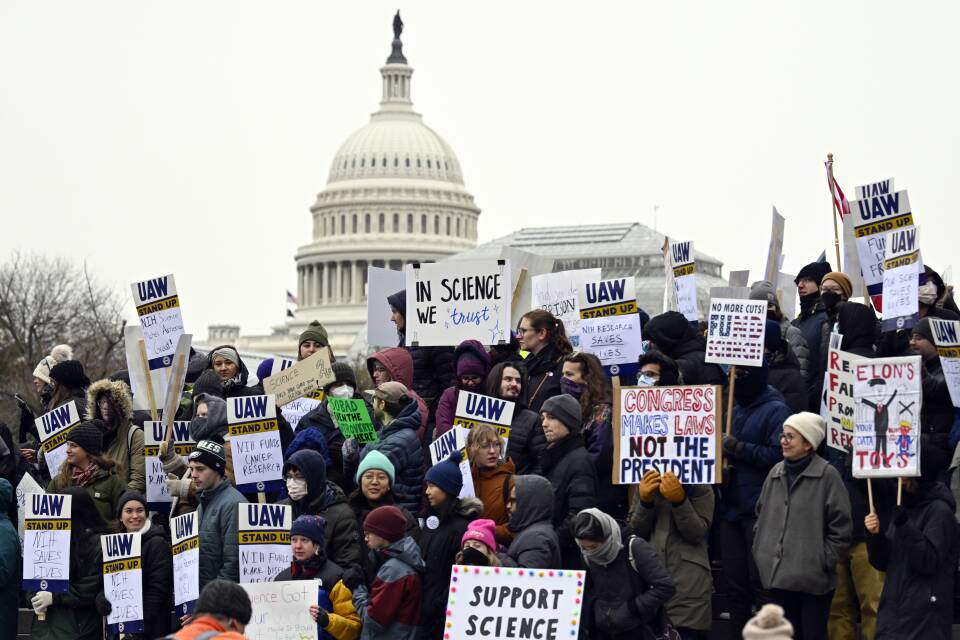Faculty are celebrating Harvard’s sweeping court victory, a day after a federal judge reversed billions in research cuts to the university, calling the ruling against the Trump administration “a win for academic freedom and democracy.”
On Wednesday, Judge Allison Burroughs ruled the administration tried to strong-arm Harvard by dictating admissions, hiring and disciplinary practices. In her decision, she wrote the government had used antisemitism “as a smokescreen for a targeted, ideologically-motivated assault on this country’s premier universities.”
For Harvard faculty on the front lines of research, the decision is about much more than money. Government professor Ryan Enos said it reinforces higher education’s independence.
“It affirms that the government cannot extort money from private institutions for political reasons,” he said. “That’s important to everybody, not just Harvard.”
Attorneys for the federal government had argued the funding freeze was justified, claiming Harvard repeatedly turned a blind eye to antisemitism on campus following high-profile protests around Israel’s actions in Gaza.
But Todd Wolfson, president of the American Association of University Professors, says the Trump administration had “virtually no information about the prevalence of antisemitism” to back that claim. While the freeze orders were in place, Wolfson pointed out, critical research at Harvard was frozen.
“Research that could save lives, reduce costs and protect our environment. The stakes were that high,” said Wolfson, whose association separately sued the Trump administration and had its case merged with Harvard’s.
History professor Kirsten Weld, who leads Harvard’s AAUP chapter, credited faculty and researchers for standing up to help secure the legal victory.
“Teachers and researchers spoke out bravely and at considerable risk about the irreparable harms that they’ve suffered as a direct result of the federal government’s arbitrary and capricious attacks on their academic freedom and on their livelihoods,” she said.
In her opinion, Burroughs noted that it is researchers’ “names that appear directly on the face of the grant agreements, their labs that receive the funding, and their research that is eliminated when funding is discontinued.”
Unlike Columbia, Brown and Penn, Harvard has not struck a deal about its governance with the Trump administration. Federal attorneys say they will appeal the judge’s ruling, and legal experts expect the legal fight to persist for years.
Carl Tobias, a law professor at the University of Richmond, predicted the appeals court will likely uphold Burroughs’ decision.
Tobias said Burroughs and other federal judges are well aware of Trump’s tactics by now.
“It’s pretty obvious to a lot of people that he’s targeted Harvard as the biggest and oldest university in the country,” he said. “So it shouldn’t be surprising.”
In a muted message to the campus community, Harvard president Alan Garber said the ruling affirms the university’s First Amendment rights and the core principles of American higher education.
But he also cautioned Harvard will “continue to assess the implications of the opinion, monitor further legal developments, and be mindful of the changing landscape in which we seek to fulfill our mission.”
Meanwhile, Simon Hankinson, a senior research fellow at The Heritage Foundation, a conservative-leaning organization in Washington, D.C., said he was not surprised by the decision given where it was rendered. Hankinson and other conservative analysts said they expect the administration to fight it all the way to the Supreme Court.
“Harvard can afford very good lawyers, but I would very much doubt this is the last battle in this campaign,” he said. “I’ve not seen President Trump in the past back down from a fight.”








